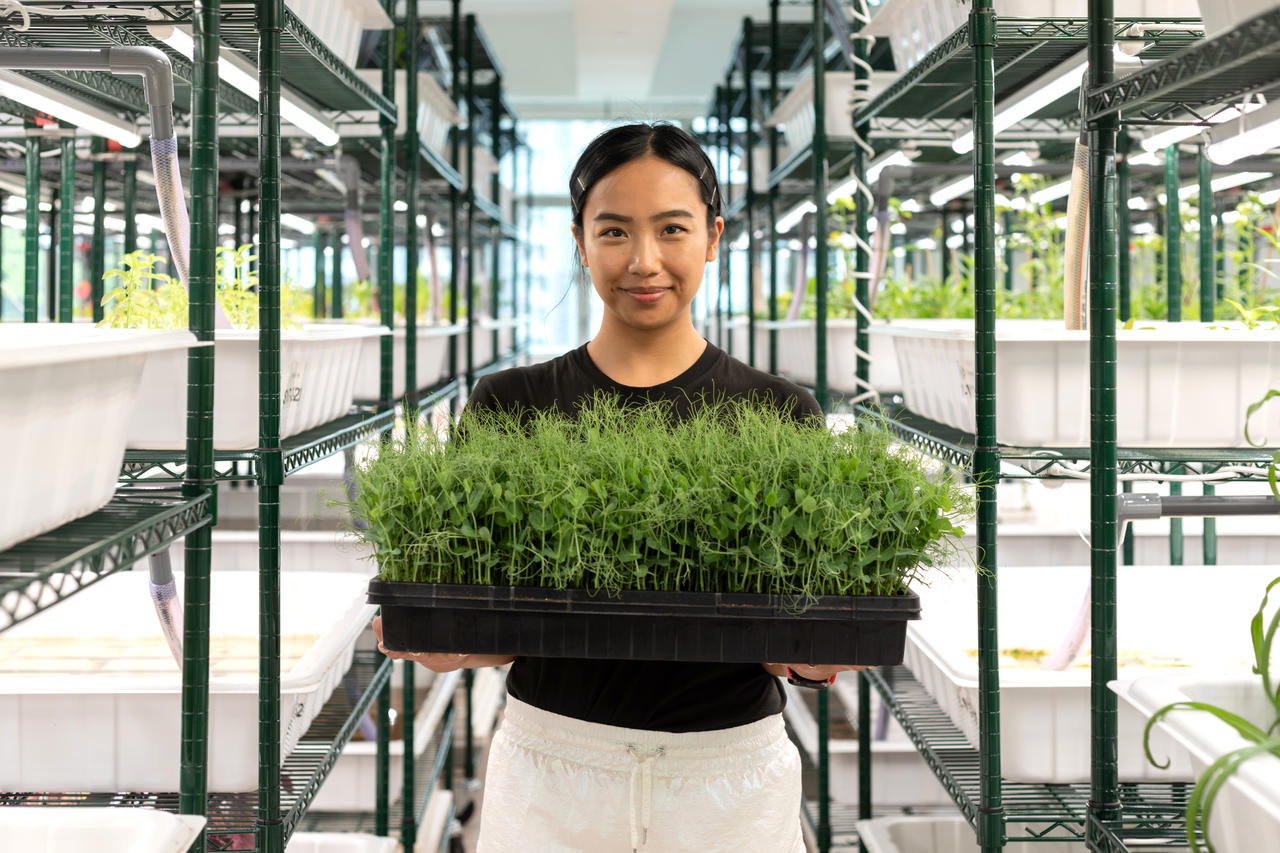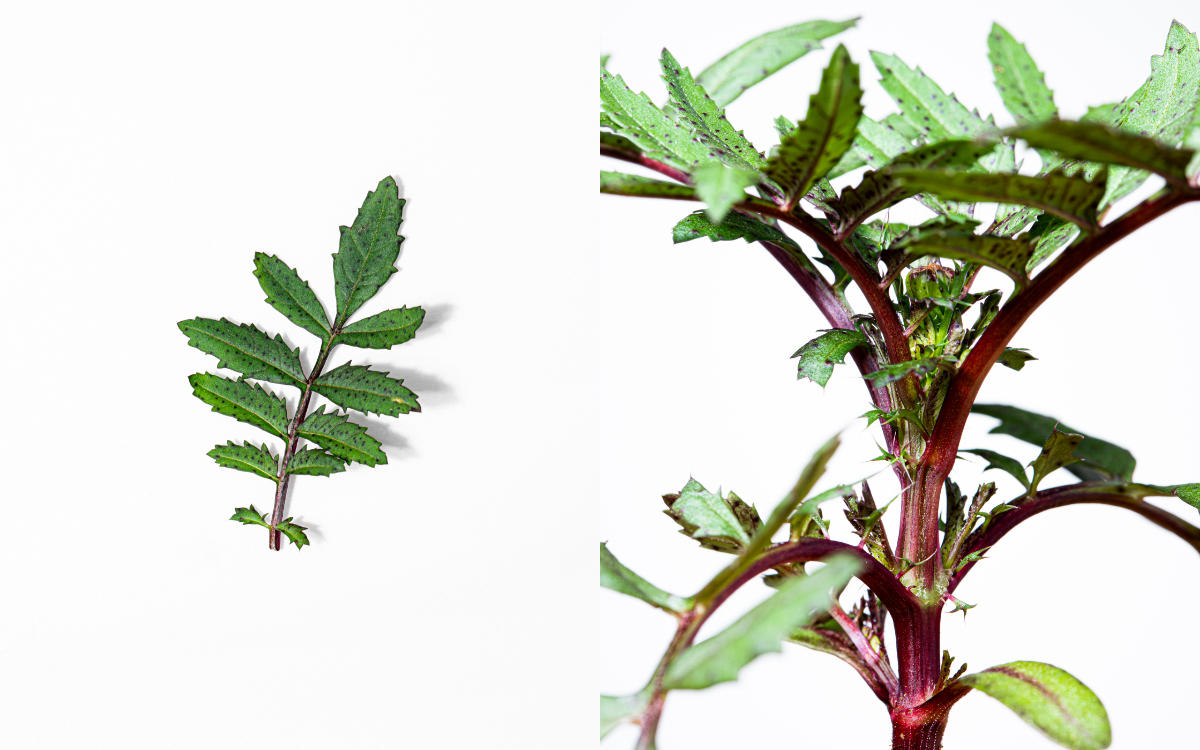
SUPPORT LOCAL: COMMON FARMS
With co-founder and urban farmer, Jessica Fong
In our second episode of the Lane Crawford podcast, our Head of Content, Christel, chats with Jessica Fong, one of the founders of Common Farms, a small business that is innovating what indoor or urban farming is in Hong Kong.
Common Farms is arguably Hong Kong’s top local source for specialty produce, meaning they grow and sell micro greens, edible flowers, seeds, grow kits and more. You might find Common Farms’ produce in dishes at places like neo-Parisian bistro Belon, contemporary British restaurant Roganic, Giando’s Italian restaurant and bar, SoHo staple Ho Lee Fook, in the concoctions of matcha mavens Matcha-Li, as well as the kitchens of various notable private chefs.
Head of Content and Podcast Host: Christel Escosa @Christel_escosa
Podcast guest: Jessica Fong
Photography: Harry Chan @nth_hppns
Listen to episode 2 of our podcast above, or read the transcript of it below, to discover how the trio came to the decision to sow some seeds to see what they could reap.
CHRISTEL: Hi Jessica!
JESSICA: Hey!
CHRISTEL: Welcome to the Lane Crawford podcast.
JESSICA: Thank you so much.
CHRISTEL: So, let me start by introducing Jessica and just letting you all know that I’ve known her for quite a long time.
JESSICA: I was trying to think when.
I remember we first met in Paris many years ago, and then we met again quite randomly in Hong Kong when I first arrived. So, if you can fill in and let anyone who’s listening know how you got to Paris and then how you kind of like –
CHRISTEL: Who are you, Jess? Who are you?
JESSICA: I’ll try to keep it short, but we met in Paris because I was living in Paris. I was studying in Paris then.
CHRISTEL: What were you studying at the time?
JESSICA: I was doing a double in business and communications with intention. I was studying and working in fashion as well, because I was like, “Oh I need to deal with the business component”. I was intentionally in Paris and wanting to work towards fashion. And then it wasn’t for me after, I think, a couple of years of that. Then I fell in love with architecture. My dad then pulled me back and that’s when I ended up in Hong Kong. Paris was because I was in my rebellious years and my mum told me to go to Canada, and I was like, “No! Because you told me to do that.” And then with the UK, because the population of Hong Kong students is just immense, I felt like I was going to be a small fish in a big pond – I did not want to do that. Same thing with Australia. The US was the only place I was really going to go to but I wanted to live in Paris because when we were younger, my dad took us there and it was my favourite European city. I was like, “I’ll just live there.”
And surprisingly enough my dad said, “You know what? I’m going to support you for that because I want you to gather more culture.” So, I went there for a year – well, intended a year, and it turned out to be four years. That was that, and Paris is great.
CHRISTEL: Paris is Paris.
JESSICA: Yeah.
CHRISTEL: So, when you moved back to Hong Kong, where did your path take you? Just to set up the backdrop of how you started coming from –
JESSICA: I still – well, I still don’t know what I’m doing. But I still don’t know what I don’t know. When I came back – I think most people don’t know this – it was with the intention to help my dad with his manufacturing business, so I ended up in China a lot. And the business was about to go bankrupt and it did…
I was so lost when I came back. I thought I was going to come in and help my dad and, you know, because you’re young and you’re dynamic and I had learned so much, I had graduated from college. So, I was going to come in, I knew what I was going to do; when I really didn’t know what I was doing or where I wanted to go. There was a lot of resentment, frustration and anxiety – just everything combined.
And it was really hard to navigate through it, especially when your parents are more traditional Chinese. But they did, to their credit, give me a lot of room to decide what I wanted to do. And it was for me to make the mistakes that I needed to make.
I think a lot of people thought I was coming back, that I had a bank account waiting for me to spend. I really didn’t have that. I didn’t even realise how much financial trouble my family was in. So… you build a lot of resilience through it. The only way to survive was trying to move through all the shit. Dig through and strip it one by one. That’s kind of where the past few years have been. So, working with my dad made me realise that’s not what I wanted to do, and that’s not where I can bring the most value. It’s not where my interest is at. But I think the best way of moving forward for my relationship with him was to remove myself. Then, I kind of ended up in the restaurant business, which I think everyone –












